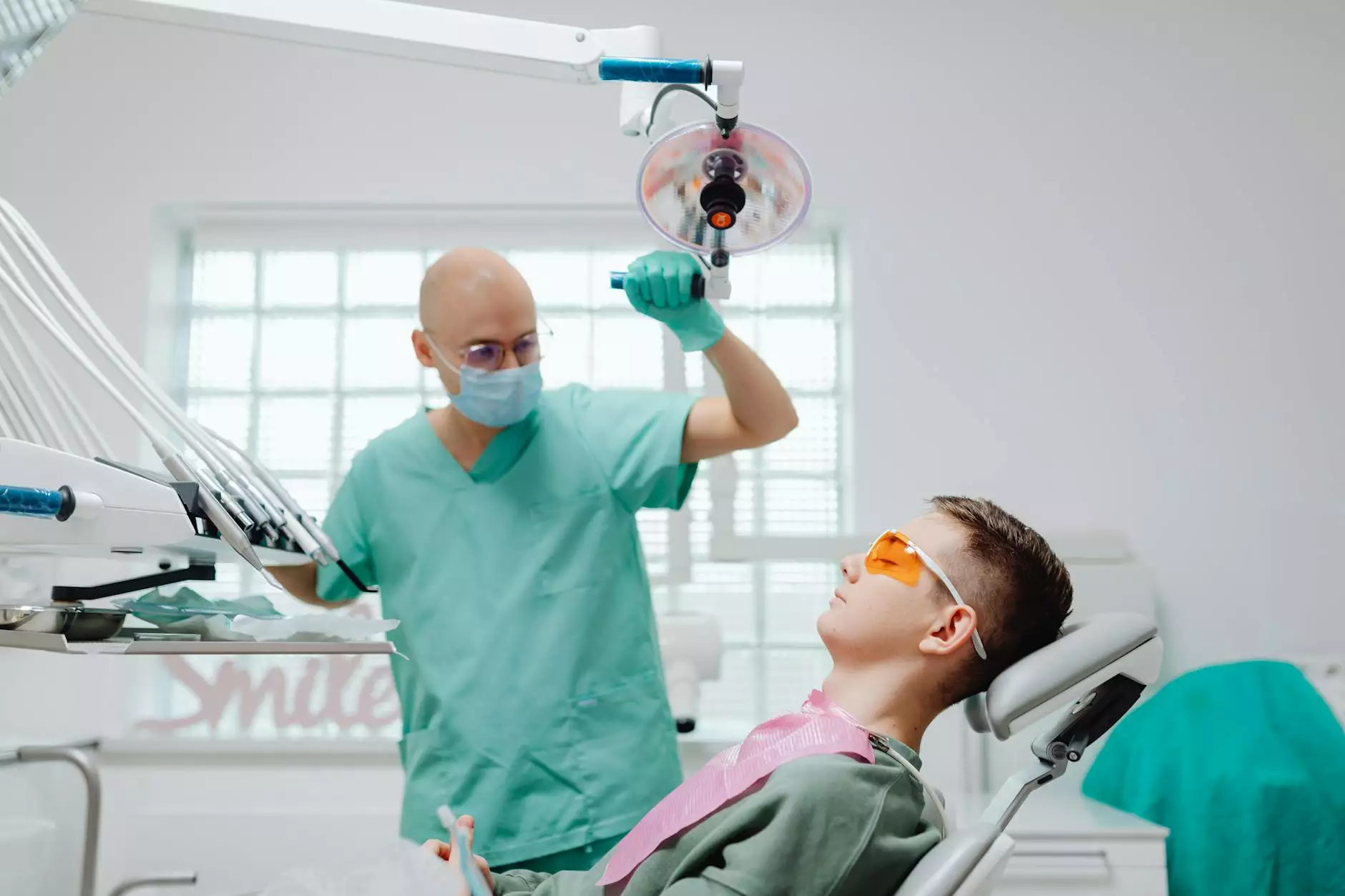Understanding Depression Clinics: The Path to Recovery

In an era where mental health is gaining unprecedented recognition, depression clinics have become pivotal in providing essential support and treatment to individuals grappling with mood disorders. These centers not only address the challenges associated with depression but also empower patients through comprehensive care and innovative treatment options. With an increasing number of people seeking help, it is essential to delve deeper into what these clinics offer and how they can change lives.
The Importance of Specialized Care
Depression is not merely a fleeting feeling of sadness; it is a prevalent and serious mental health disorder that affects millions globally. At its core, depression can impact every aspect of life, leading to significant emotional, physical, and social impairments. This is where depression clinics play a crucial role. They provide targeted care aimed at managing and curing depression, ensuring that individuals receive personalized attention tailored to their unique needs.
What Services Do Depression Clinics Provide?
Depression clinics offer a wide array of services designed to aid recovery and promote mental well-being. Some of the most beneficial services include:
- Assessment and Diagnosis: Comprehensive evaluations to determine the severity and type of depression.
- Individual Therapy: One-on-one counseling sessions to address specific emotional issues, coping strategies, and behavioral patterns.
- Group Therapy: Supportive environments where individuals share experiences and learn from one another under the guidance of professionals.
- Medication Management: Prescribing and monitoring antidepressant medications to help alleviate symptoms.
- Psychiatric Support: Ongoing assessments by psychiatric professionals to address any changes in symptoms or medication efficacy.
- Holistic Approaches: Incorporating mindfulness, yoga, and nutrition counseling into treatment plans.
Innovative Treatment Methodologies
Depression clinics are at the forefront of mental health innovation, constantly adopting new methodologies to enhance treatment outcomes. Below, we explore some of the most effective and widely utilized treatments.
1. Cognitive Behavioral Therapy (CBT)
Cognitive Behavioral Therapy (CBT) is a cornerstone of treatment in many depression clinics. This evidence-based approach focuses on changing negative thought patterns and behaviors that contribute to depression. By working with trained therapists, individuals can learn to recognize their distorted thinking and develop healthier coping mechanisms, which can lead to significant improvements over time.
2. Medication and Psychopharmacology
While therapy is essential, many individuals benefit from medication as part of their treatment regimen. Antidepressants can help correct imbalances in brain chemistry and are often prescribed in conjunction with therapy for optimal efficacy. Depression clinics ensure that proper monitoring is in place to track any side effects and adjust dosages as necessary.
3. Transcranial Magnetic Stimulation (TMS)
For patients who may not respond to traditional therapies, Transcranial Magnetic Stimulation (TMS) is a promising option. This non-invasive procedure uses magnetic fields to stimulate nerve cells in the brain, targeting areas involved in mood regulation. Studies have shown TMS to be effective in treating severe depression in individuals who have not found relief through other treatments.
4. Mindfulness and Holistic Strategies
Many depression clinics integrate mindfulness practices and holistic approaches into their treatment plans. Techniques such as meditation, deep-breathing exercises, and yoga can significantly reduce stress and improve emotional regulation. By addressing the whole person—body, mind, and spirit—these clinics foster a more comprehensive recovery process.
Success Stories: Lives Transformed
Stories of success emerge from depression clinics around the world. Individuals who once felt hopeless and isolated often find renewed strength and purpose through persistent treatment efforts. For instance, patients often report:
- Improved Quality of Life: Through effective treatment, many reclaim joy in their lives, reconnecting with loved ones and forming new relationships.
- Enhanced Coping Skills: Learning how to manage stress and emotions equips patients with the tools needed for long-term recovery.
- Increased Productivity: Finding their passion again allows individuals to thrive in personal and professional spheres.
- Better Physical Health: Improved mental health can lead to better lifestyle choices, including exercise and nutrition, promoting overall wellness.
The Collaborative Care Approach
At its best, what sets depression clinics apart is their emphasis on a collaborative care approach. This means that various professionals—including psychologists, psychiatrists, social workers, and nutritional experts—work together to create a cohesive and comprehensive treatment plan. When teams collaborate, patients benefit from a multi-faceted approach that addresses all aspects of recovery.
Family Involvement
Depression does not only affect the individual; it impacts families too. Many clinics encourage family involvement in the treatment process. Educational workshops and family counseling sessions help loved ones understand what the patient is experiencing, fostering a stronger support network.
Choosing the Right Depression Clinic
With the increasing acknowledgment of mental health challenges, the number of depression clinics has risen. Choosing the right facility can be an overwhelming task. Here are essential factors to consider:
- Accreditation: Ensure the clinic is accredited and meets the required standards of care.
- Specialization: Look for clinics that specialize in mood disorders and have diverse treatment options.
- Treatment Philosophy: Understand their approach to treatment—holistic vs. traditional methods— and see what resonates with your views.
- Patient Reviews: Research feedback from former patients regarding their experiences and outcomes.
- Location: Proximity can play a significant role in attending regular sessions, so consider clinics that are accessible.
FAQs About Depression Clinics
What Should I Bring to My First Appointment?
It's helpful to bring a list of your symptoms, medications, any previous treatment history, and questions you may have for the clinician. This information can assist the healthcare provider in understanding your situation better.
How Long Will I Need to Attend Treatment?
The duration of treatment varies depending on individual needs. Some may benefit from a few weeks of intensive care, while others may require ongoing support for months or even years.
Is Treatment Expensive?
Costs can vary widely based on the facility and type of services offered. Many clinics work with insurance providers. It’s essential to discuss your insurance coverage with the clinic directly.
Can I Bring a Family Member to My Appointments?
Yes, many clinics encourage family involvement in the treatment process, which can help support the patient during recovery.
The Future of Mental Health Treatment
As society continues to recognize the significance of mental health, depression clinics are evolving. They are embracing new technologies, treatment methodologies, and approaches to care, creating an environment where individuals can thrive.
Telehealth Services
The rise of telehealth allows for greater accessibility, offering remote consultations that help overcome barriers related to transportation and scheduling. This expansion makes it easier for individuals to seek help from the comfort of their homes.
Conclusion
In closing, depression clinics provide a beacon of hope for those navigating the challenging waters of depression. They arm patients with the necessary tools, support, and treatment to embark on a journey towards recovery. By understanding the services offered and the methodologies employed, individuals can make informed decisions about their mental health care. Remember, seeking help is the first step towards healing, and with the right support, life can be brighter.
For more information on mental health services, visit MediGlob, where you can find resources and guidance tailored to your needs.



